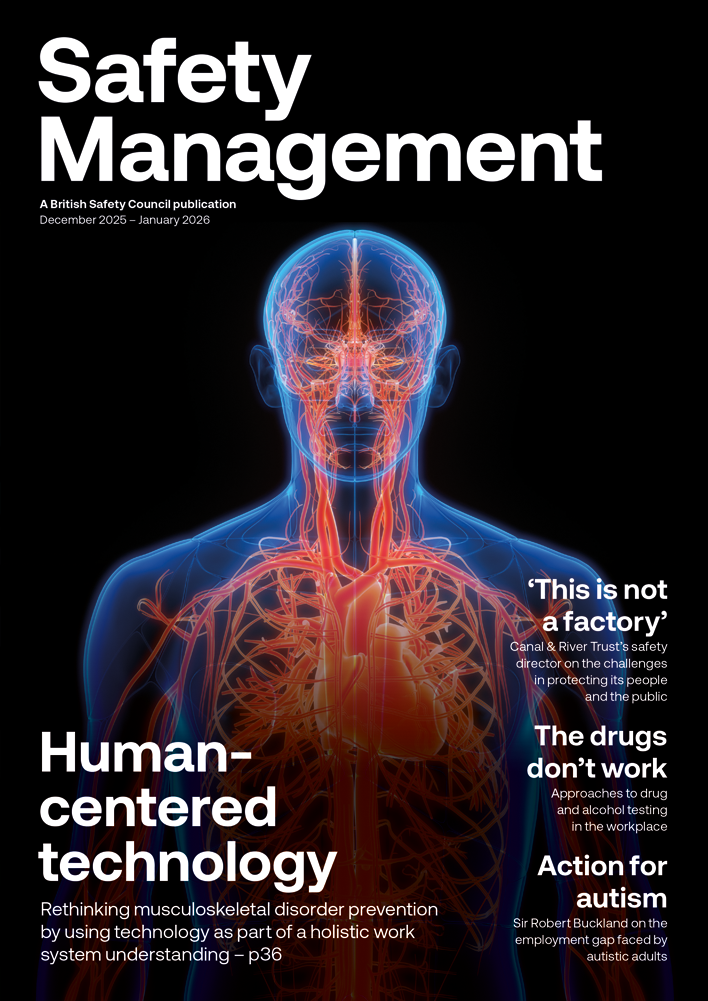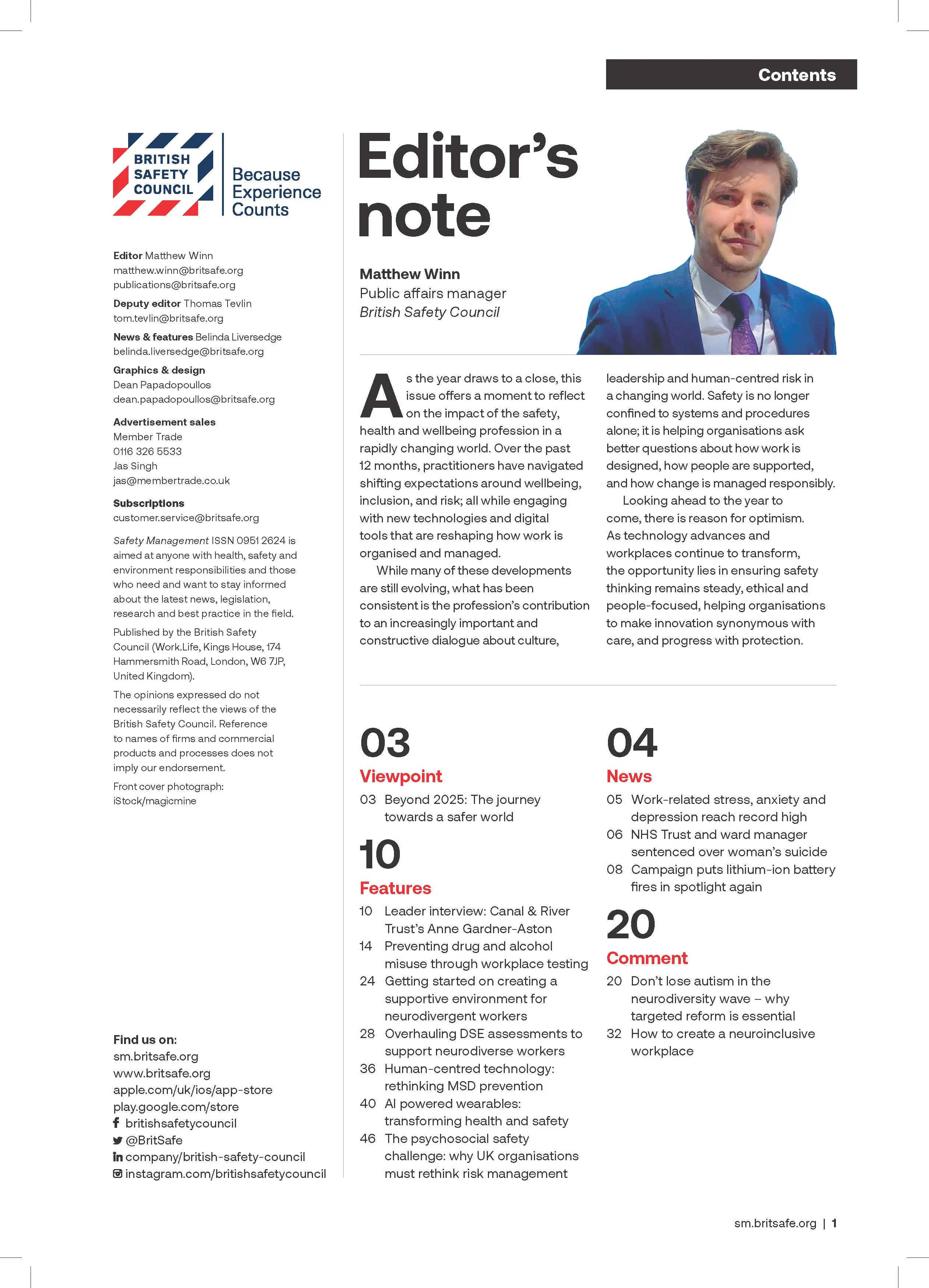Everywhere you look these days, people are talking about wellbeing. It seems the subject of how we thrive, in increasingly complicated modern times, has well and truly arrived. And yet….? Are we really being strategic about this?
Opinion
Please Hold
At the British Safety Council, we encourage employers to invest in workplace health and wellbeing. Our aim is to create better working lives. Doing so, can, we believe, reduce staff turnover, and improve performance. Evidence to support this is expanding.
But as we say, in our 2018 review of the literature on wellbeing at work, this is about more than just free fruit!
The good news is that employers have picked up the baton. Interest is growing worldwide. But recent experience – helping more vulnerable customers – makes me wonder if they have a broader role.
Let me explain.
There’s a rather humorous poem by Ciaran O’Driscoll. In “Please Hold” he becomes ever more frustrated, while listening to ‘bleep’ ‘bleep’ Nachtmusik, interspersed with robotic assurances about the importance of his – increasingly protracted and profitless – call. My bleeps not his, I hasten to add.
 Samantha Peters: "Isn’t it time to admit that if we want employee wellbeing, we need customer wellbeing too?"
Samantha Peters: "Isn’t it time to admit that if we want employee wellbeing, we need customer wellbeing too?"
After a summer spent helping an elderly relative negotiate such systems, I now know just how he feels. I haven’t bleeped at anyone, but I have hung up in frustration.
I’m not normally so impatient. And yet, I am starting to see this everywhere. Systems which don’t work or make sense. An appointment where I was asked to wait for a call, in a place where reception didn’t work! Someone processing my usage for billing purposes, then explaining I’d have to call back on a set date and give this all over again, for, you’ve guessed it, billing purposes!
And, of course, hours and hours and hours at the end of a line, pressing buttons. And it’s not just me. On a recent trip to the library, I overheard a group of pensioners saying how impossible they found online systems. So, I must ask, when did customer services become so unserviceable. When did systems designed to increase satisfaction become so, well, unsatisfactory?
We’ve all walked into offices and seen posters on the wall about zero tolerance for abuse or heard messages to that effect when we call. And this is right. No one should be abused at work.
But what if, amidst the endless options there isn’t one that meets your need. What if you can’t see the buttons to press. What if you can’t hear so well? What if you live in a house without WiFi. What if you’re cut off after hours of waiting? What if you’re promised someone to talk to, but there’s no option for that? I’ve seen all these recently and had my elderly relative at the end of a phone in tears trying to unravel it all.
What if customer service systems are now setting staff and customer against each other? What if the process itself creates the conflict? Frustration feels inevitable. Is it so surprising that customers are anxious or angry, impatient, or upset? What does that do to their wellbeing? How are they going to behave as a result? And what if their poor wellbeing is eroding employee wellbeing?
Isn’t it time to admit that if we want employee wellbeing, we need customer wellbeing too?
For more information on the Being Well Together programme see:
beingwelltogether.org
Dr Samantha Peters is Chair of the Being Well Together Committee, at the British Safety Council
OPINION

A new year, a new approach to risk?
By Mike Robinson FCA, British Safety Council on 02 February 2026
The rulebook is becoming obsolete faster than we can rewrite it. While bureaucracies labour to update yesterday’s regulations, the world of work transforms daily.

Nothing is wrong – until it is: safety in an age of permanent uncertainty
By Dr Julie Riggs, British Safety Council on 30 January 2026
The fast-moving geopolitical, environmental and social landscape is making it increasingly difficult for organisations to identify, predict and plan for emerging safety hazards and risks, making it more important than ever for safety practitioners to spot the early warning signs before serious harm occurs and alert their employer and the global OSH community.

Alcohol – the negative impact on work and workplaces
By Dr Jamie O’Halloran, IPPR on 02 January 2026
New IPPR research shows that most employees expect their employer to play an active role in reducing alcohol harm. Senior staff, in particular, believe employers have an even greater responsibility. Yet in practice, many employees say they do not see their employer taking meaningful steps to minimise harm.



